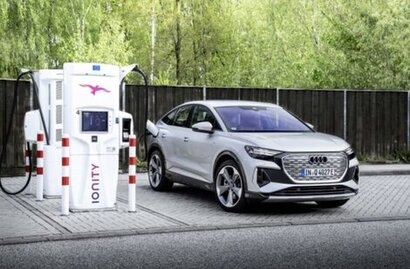
Audi is accelerating its transition to e-mobility as part of its strategic alignment. It will gradually phase out the production of internal combustion engines until 2033 and is aiming to achieve net-zero emissions by 2050 at the latest.
The exact timing of the combustion engine’s discontinuation at Audi will ultimately be decided by customers and legislation.
“Through our innovative strength, we offer individuals sustainable and carbon-neutral mobility options” said Audi CEO Markus Duesmann. “I don’t believe in the success of bans. I believe in the success of technology and innovation.”
The company expects to see continued demand in China beyond 2033, which is why there could be a supply of vehicles there with combustion engines manufactured locally. At the same time, Audi will significantly expand its range of all-electric models. With the new e-tron GT, RS e-tron GT, Q4 e-tron, and Q4 Sportback e-tron models, Audi is already launching more electric cars than models with combustion engines this year. The company is aiming to have more than 20 e-models in its portfolio by 2025.
Audi is also actively involved in the development of widespread charging infrastructure and renewable energy sources. A few weeks ago, it unveiled its Audi charging hub pilot project as its own premium charging solution with a reservation system and lounge. The company has also partnered with energy suppliers to promote the expansion of renewable energy sources.
For additional information:

